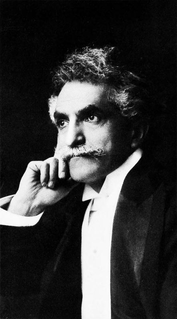A Quote by Johann Most
As set forth by theologians, the idea of 'God' is an argument that assumes its own conclusions, and proves nothing.
Quote Topics
Related Quotes
Imagine a person who comes in here tonight and argues 'no air exists' but continues to breathe air while he argues. Now intellectually, atheists continue to breathe - they continue to use reason and draw scientific conclusions [which assumes an orderly universe], to make moral judgments [which assumes absolute values] - but the atheistic view of things would in theory make such 'breathing' impossible. They are breathing God's air all the time they are arguing against him.
Scientists and theologians can’t offer better than circular arguments, because there are no other kinds of arguments. Bible believers quote the Bible, and scientists quote other scientists. How do either scientists or theologians answer this question about the accuracy of their conclusions: “In reference to what?
I have good idea, for if you meet some person from different religion and he want to make argument about God. My idea is, you listen to everything this man say about God. Never argue about God with him. Best thing to say is, 'I agree with you.' Then you go home, pray what you want. This is my idea for people to have peace about religion.










































